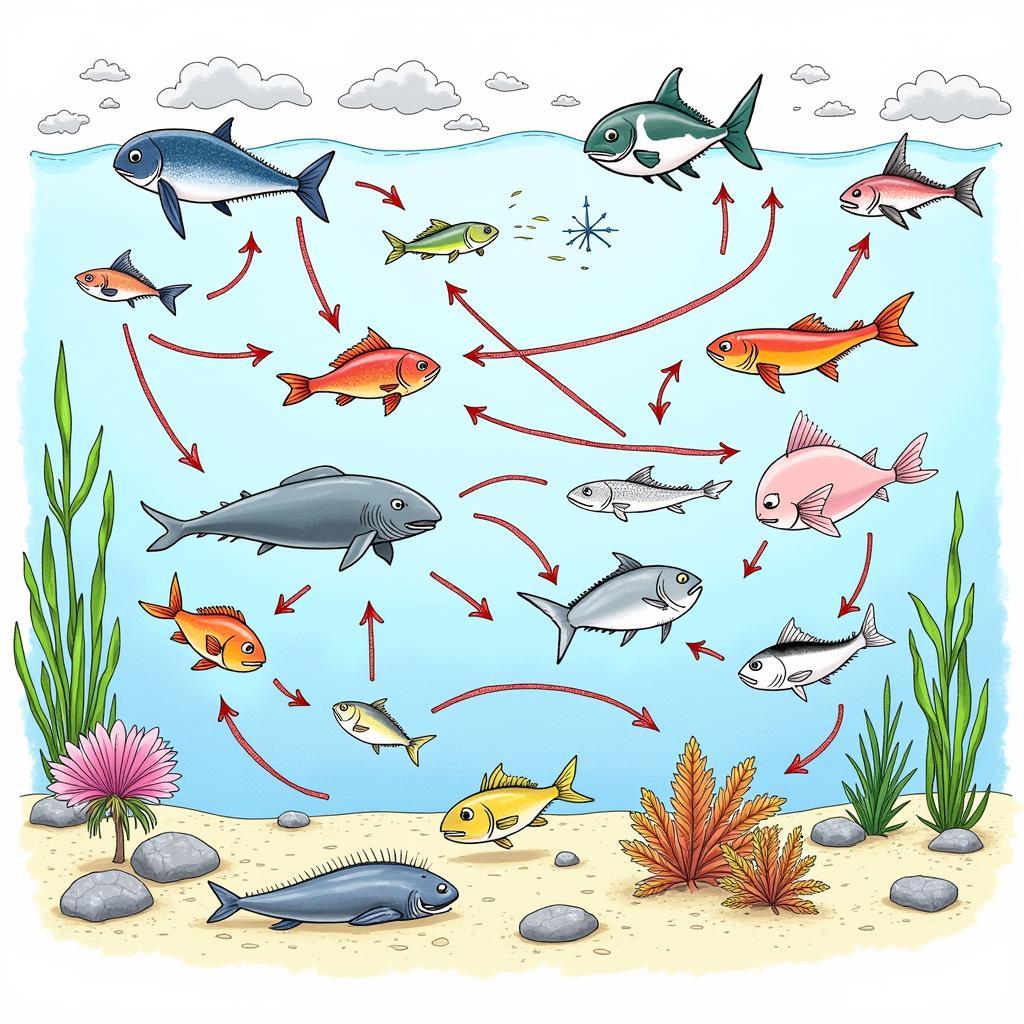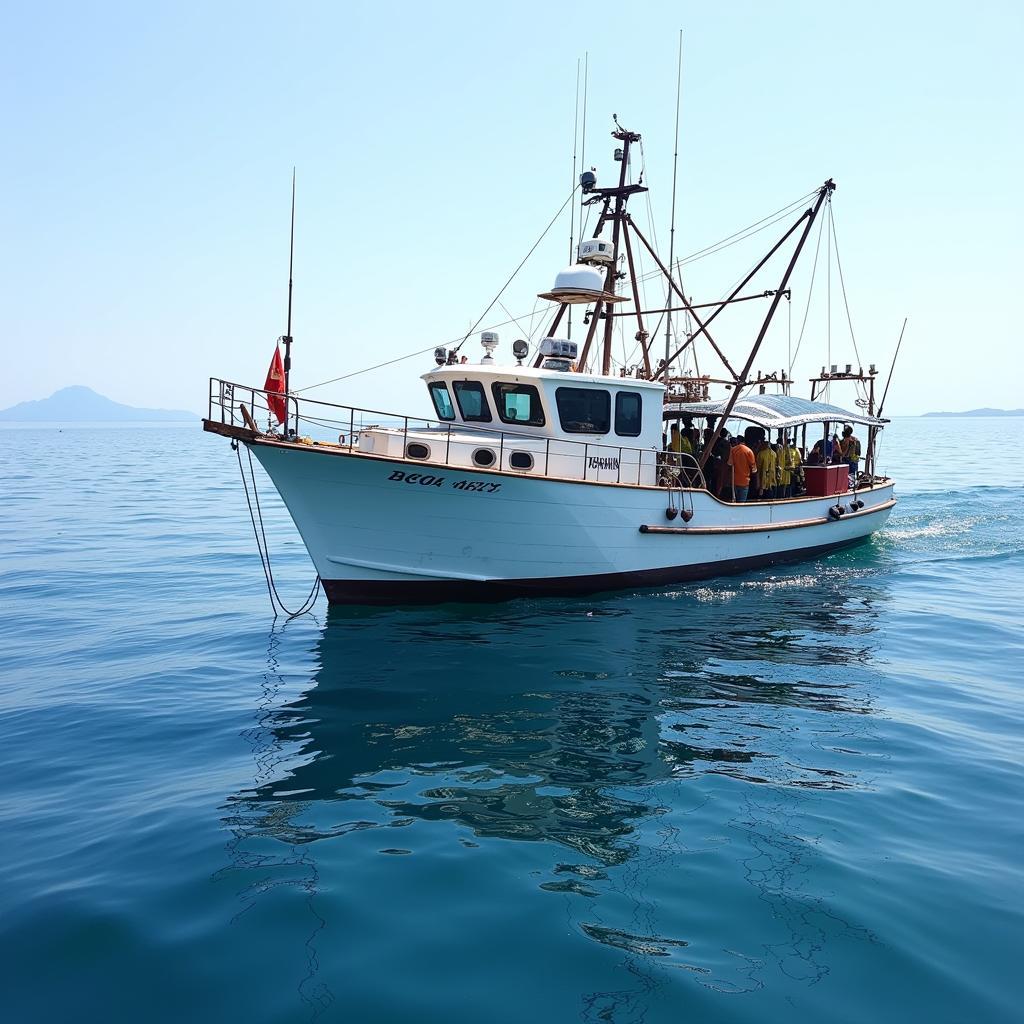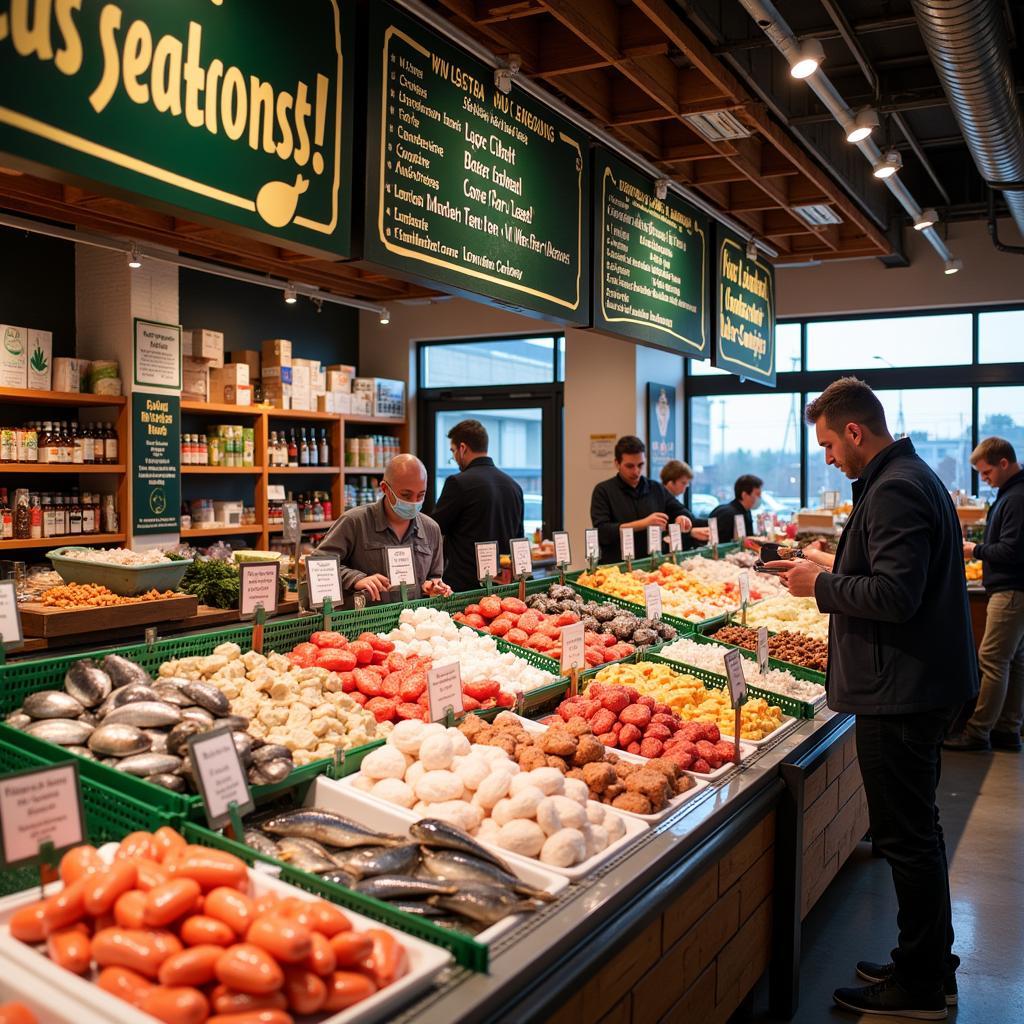The term “Food Chain Fish” might conjure up images of a simplistic, linear progression from tiny plankton to fearsome predators. In reality, the world of fish in our food chain is a complex and fascinating web of interactions. Understanding this web is crucial, not only for the health of our oceans but also for the sustainability of seafood choices we make every day.
Unraveling the Food Web: It’s More Than Just a Chain
While we often use the term “food chain,” it’s more accurate to picture a food web. Unlike a chain, which implies a straightforward, single-path progression, a web illustrates the interconnectedness of different species and their feeding relationships. In the vast expanse of our oceans, these relationships are anything but simple.
 Ocean Food Web Illustration
Ocean Food Web Illustration
From Tiny Plankton to Apex Predators: A Delicate Balance
At the base of the aquatic food web are phytoplankton and zooplankton, microscopic organisms that form the foundation of this complex system. They are the primary producers, converting sunlight into energy through photosynthesis. Small fish, crustaceans, and other creatures feed on this plankton, transferring energy up the food web.
These smaller marine animals, in turn, become prey for larger fish, seabirds, and marine mammals. This intricate dance of predator and prey ensures a delicate balance within the ecosystem. Disruptions at any level, whether through overfishing or environmental changes, can send ripples throughout the entire web.
 Sustainable Seafood Fishing
Sustainable Seafood Fishing
Making Sustainable Choices: Your Role in the Food Chain
As consumers, we play a crucial role in maintaining the health of the food chain fish. By understanding where our seafood comes from and making informed choices, we can contribute to sustainable fishing practices. Opting for seafood that is caught or farmed responsibly helps ensure the long-term health of fish populations and minimizes the impact on the marine environment.
What to Consider When Choosing Seafood:
- Sustainability Certifications: Look for labels from reputable organizations such as the Marine Stewardship Council (MSC) for wild-caught seafood and the Aquaculture Stewardship Council (ASC) for farmed fish. These certifications indicate that the seafood has been sourced responsibly.
- Know Your Fish: Familiarize yourself with different species and their vulnerability to overfishing. Resources like the Monterey Bay Aquarium’s Seafood Watch provide science-based recommendations for sustainable seafood choices.
- Variety is Key: Don’t be afraid to branch out from your usual choices! Exploring a wider variety of fish helps reduce pressure on overfished species.
 Sustainable Seafood Market Choices
Sustainable Seafood Market Choices
Protecting Our Oceans: A Shared Responsibility
The health of our oceans and the sustainability of our seafood choices are intertwined. By understanding the delicate balance of the food chain fish and making responsible decisions, we can help protect this valuable resource for generations to come.
Remember, every choice we make as consumers sends a message to the market. Let’s use our collective power to support sustainable fishing practices and ensure the future of our oceans.
FAQs About Food Chain Fish:
What is the difference between a food chain and a food web?
A food chain is a linear sequence showing how energy moves through an ecosystem, while a food web is a more complex and realistic representation of interconnected food chains.
Why is overfishing a threat to food chain fish?
Overfishing disrupts the natural balance by removing too many fish from a population, impacting predator-prey relationships and the overall health of the ecosystem.
How can I support sustainable fishing?
Choose seafood with sustainability certifications, educate yourself about different species, and vary your seafood choices.
What are some examples of sustainable seafood choices?
Some sustainable seafood options include Alaskan salmon, Pacific halibut, oysters, and mussels.
Why is it important to protect the oceans?
Oceans play a vital role in regulating climate, providing oxygen, and supporting a diverse array of life. Protecting them is crucial for the health of our planet and future generations.
Need help navigating the world of fast food macros? Want to explore macro friendly fast food options? We’re here to help! Contact us at 02437655121, email us at [email protected], or visit us at 3PGH+8R9, ĐT70A, thôn Trung, Bắc Từ Liêm, Hà Nội, Việt Nam. Our team is available 24/7 to assist you.